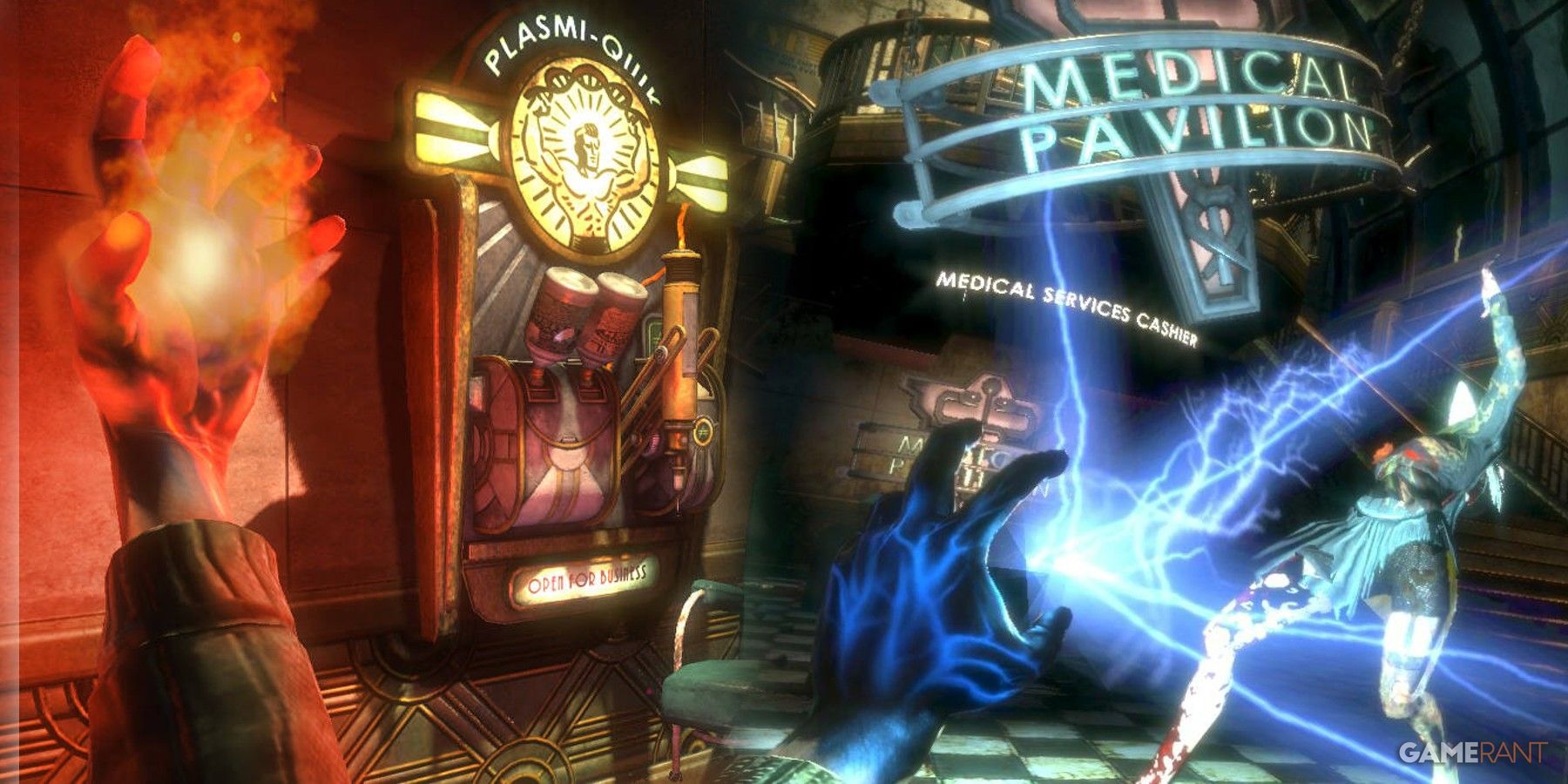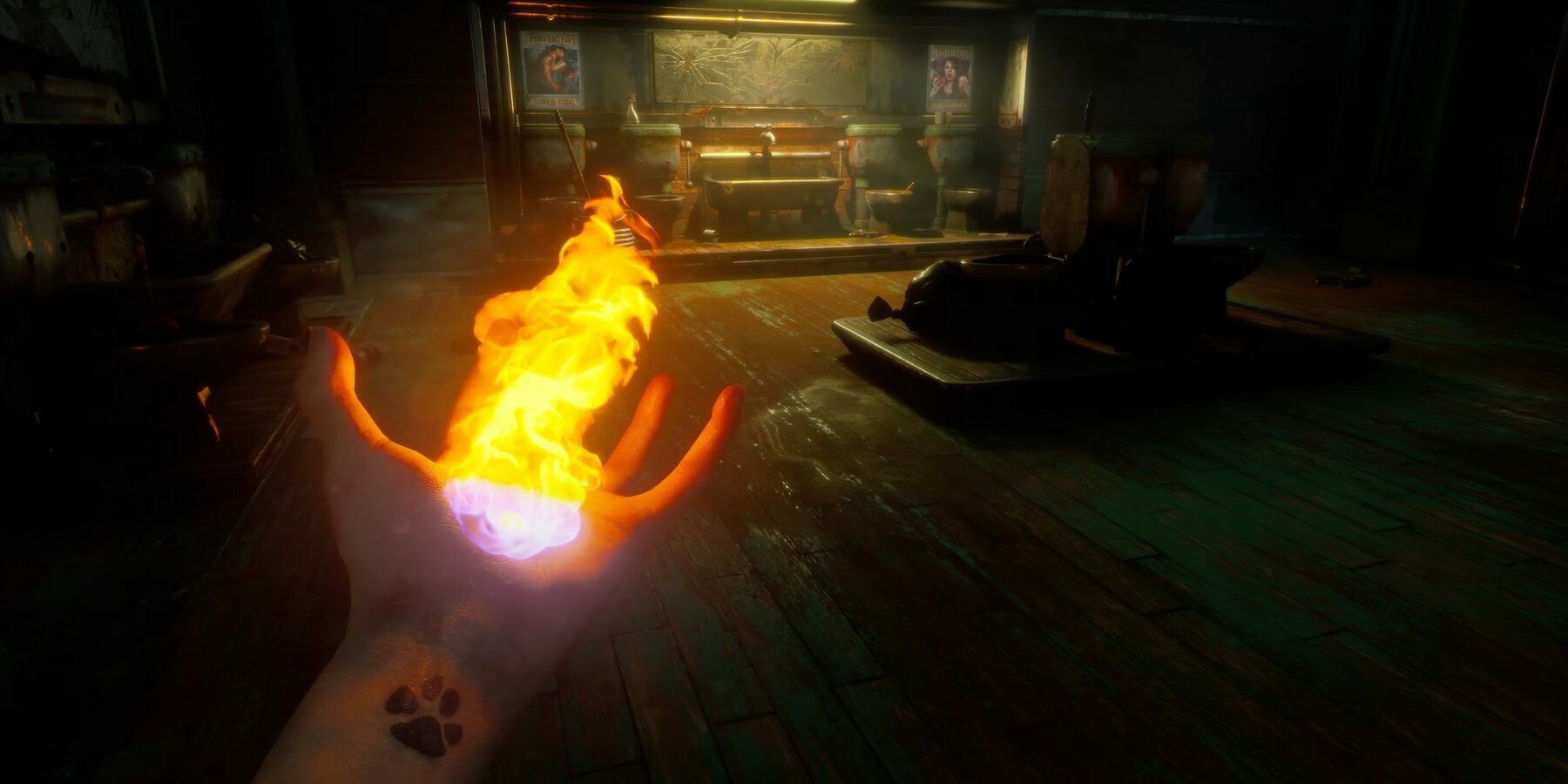Though the series has charted the depths of the Atlantic Ocean and taken players to the clouds, BioShock has always leaned on tried-and-tested gameplay mechanics and narrative ideas to push each game forward. A big part of the series' success in years past is that there is an element of predictability and familiarity within the unpredictable. However, with three mainline games and a handful of DLC experiences like Burial at Sea under its belt as well as ten years (and counting) since a new game, the IP has to shake things up to keep people guessing.
The worst thing that the fourth BioShock game can do is be just another shooter. It's got so much anticipation surrounding it, and with the recent reveal of Judas, it's clear that there are viable threats that it will have to fend off. To achieve this, BioShock 4 has the colossal challenge of adhering to series norms while also bringing something new to the table. That innovation could be addition by subtraction, or in other words, doing away with plasmids (or vigors in BioShock Infinite) and instead creating something different to keep combat fun.
BioShock Has Always Been an Industry Leader in Innovation
Plasmids were introduced in BioShock to help it stand out from other shooters that came before it. The game was unconventional compared to its contemporaries, as the first-person perspective was used to add to the immersion and unsettling nature of the game; meanwhile, with the combat relying less on guns than other titles, it provoked more ways than one to dispatch of enemies. Plasmids were fantastic, as players used the environment against their enemies or simply overpowered them in interesting and amusing ways. They brought Jack and Rapture closer together as he desperately navigates its damp walls and claustrophobic corridors.
This idea carried the first three games in the Irrational Games series, but the longer the franchise was absent after BioShock Infinite, the more other developers tried to replicate the magic. Atomic Heart was the last to try this, and its success was mixed. Should BioShock 4 bring plasmids back, it could be lost in the pack, and be a victim of the previous games' trailblazing. What was new and exciting over 15 years ago is now commonplace, and looking for a different way to handle combat could be the best way that it can one-up the competition.
Judas May Have Forced BioShock 4's Hand
That competition is fierce, as Judas was formally unveiled at the 2022 Game Awards, finally giving fans a glimpse into industry veteran Ken Levine's next project. The trailer didn't give much away, but it included some kind of elemental ability in the palm of the protagonist's hand. Between this, the wrist tattoo, and eclectic enemies, it seems that Judas is sticking closely to its spiritual predecessor.
For many, Judas is the main event as it has a chunk of the original Irrational Games personnel working on it. BioShock 4 is supplemental, and as such it has the freedom to take risks that Judas may not enjoy. It looks very similar to what people have come to know, and having two games that stick so closely to what worked all those years ago would be a waste. There will always be things that fans will expect of a new BioShock, and plasmids is one such example, but it doesn't have to be. The most important ingredients of the series are storytelling, atmosphere, and characters; everything else is a bonus.
BioShock 4 is in development.






